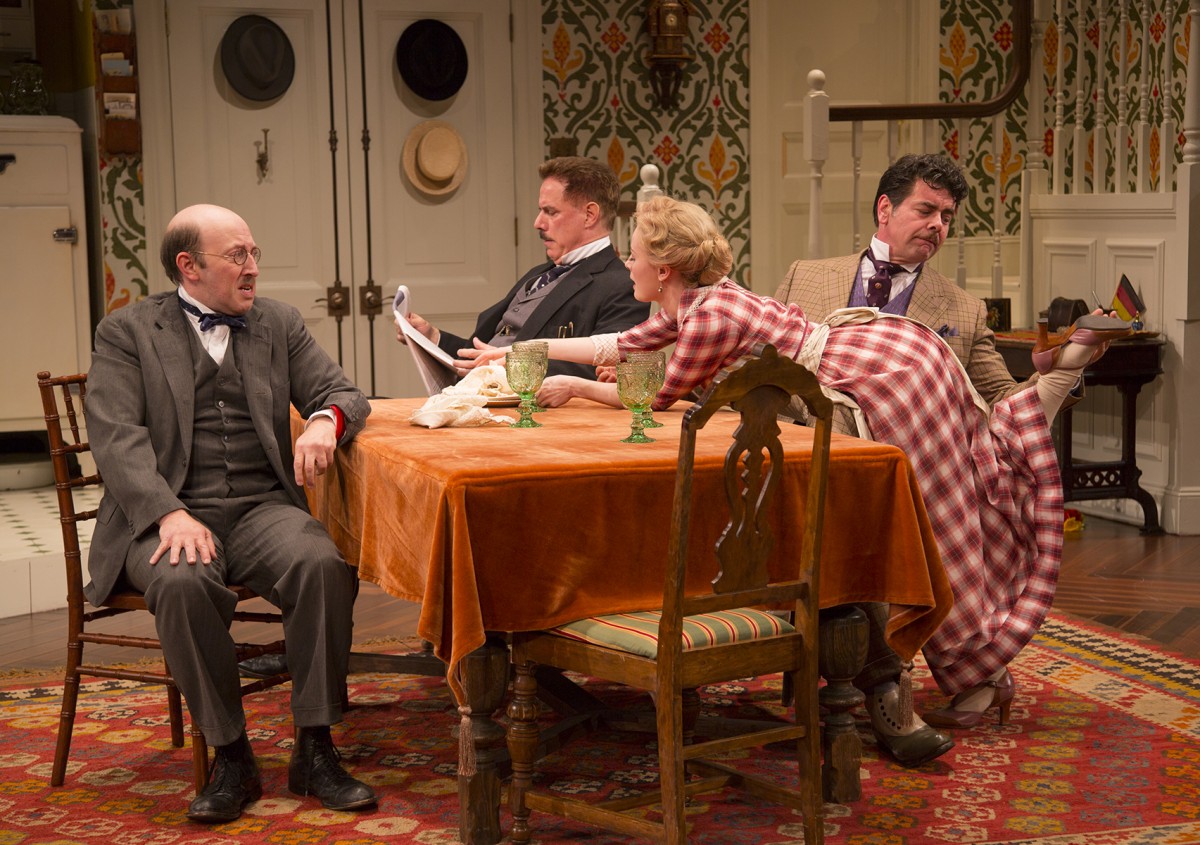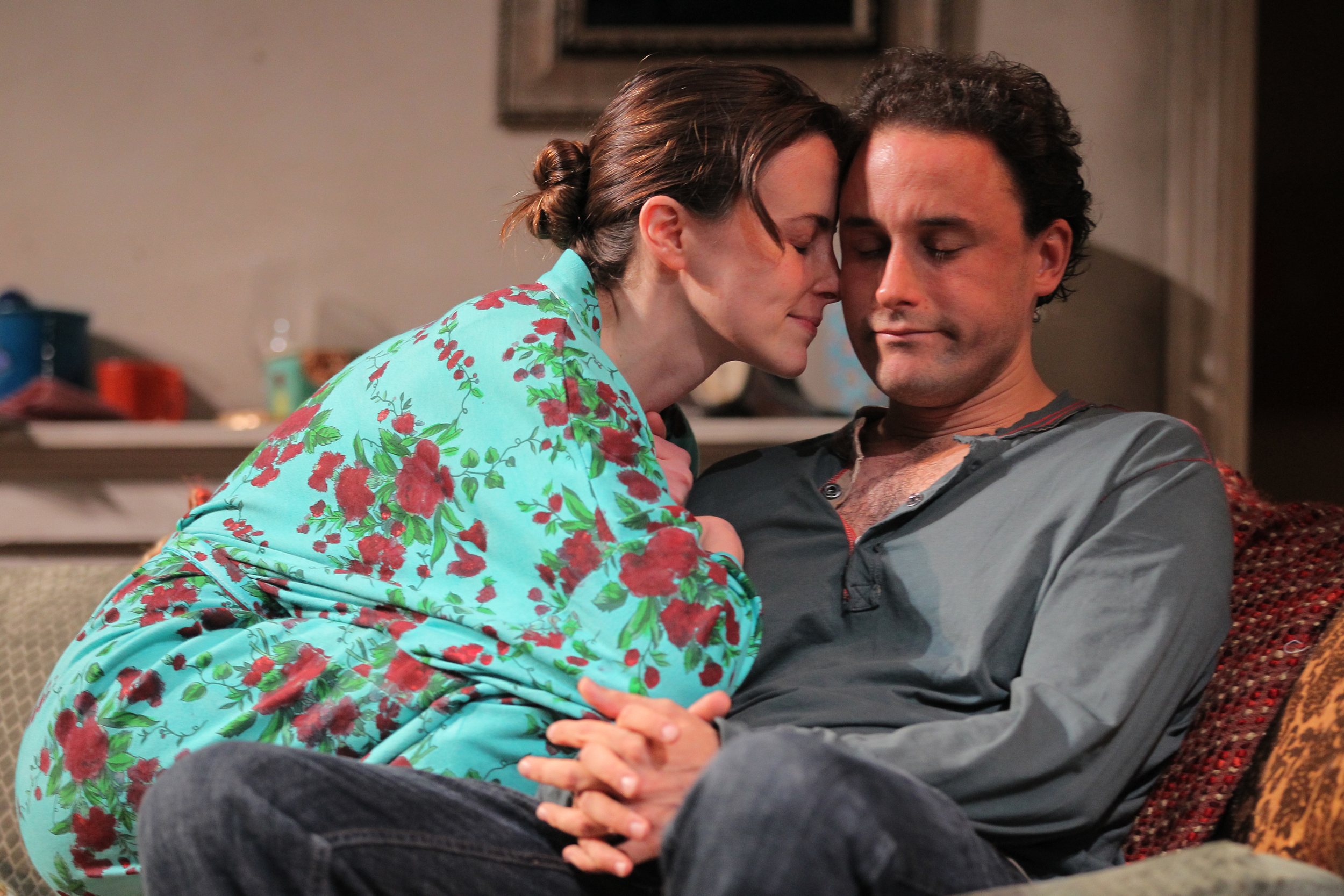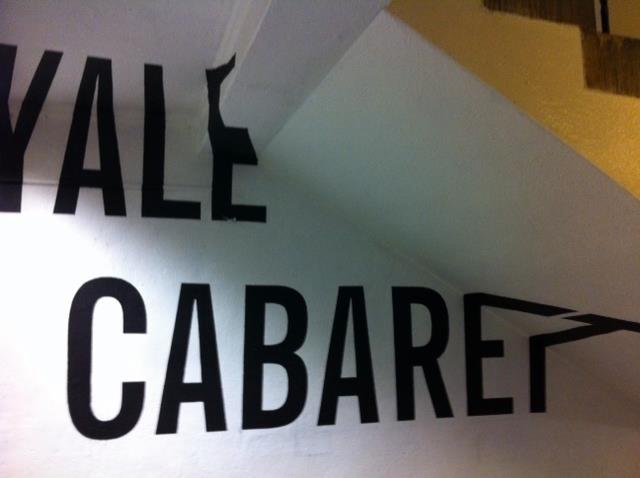Amy Herzog’s 4000 Miles is a straightforward family drama, full of a natural empathy for its two main characters, a widow in her 90s and her grandson, a twenty-something newly arrived in New York City after biking all the way from Seattle. After his awkward welcome—he arrives in the wee hours while his grandmother is asleep and she first greets him without her dentures in—Leo settles into life with Vera and both, by play’s end, have come to terms or are coming to terms with change in other relationships in their lives. Key to the play’s charm is its ability to handle relationships with a feel for the complex arrangements of attraction and antagonism that work under the surface between friends and between kin. Herzog is not afraid to make her characters less than admirable at times, but they never wear out their welcome.

One often hears about whether or not male authors can “write women characters”; much less often do we hear about whether female authors can “write men.” Herzog can. Her Leo Joseph-Connell (Micah Stock) has the kind of intense self-regard with efforts at humility and companionability that are hallmarks of the well-intentioned male of his day. Micah Stock plays Leo with the kinds of hesitations and measured responses that speak of the thoughtful male who feels his thoughts should be of general interest. It’s a great, understated performance. Much in this play requires a delicate touch: if the humor is too broad or the characters too stiff, the effect of its natural sympathy will suffer. Eric Ting’s successful rendering of this popular play makes the most of the Long Wharf’s intimate thrust amphitheater to bring us into this home and make us comfortable.
As Vera Joseph, Leo’s welcoming but settled grandma, Zoaunne LeRoy has to provide much of the play’s ultimate feeling. Hard of hearing, hard-headed in some things (such as her judgments on her neighbor and her insistence that Leo’s girlfriend Bec is too plump), at times grasping for the right word, her hands fluttering and gesturing, at times wobbly or wearily surfing her memory banks, at times giddy and a bit girlish, Vera is a subtly written character and LeRoy makes her real. She’s not some generic old lady or someone’s warm or prickly granny. Vera feels like an actual person, with a rather complicated past. A communist, Vera has come through her life with definite principles, the kind that don’t exactly earn her respect from her children’s generation, having to make do with an accepting “Marx is cool” from her grandson. Ting and his cast let silences allow us to imagine the sorts of things Vera might’ve said to her grandson were she younger and the ideas from her long-deceased husband’s lectures fresher in her mind.
As it is, the two find agreeable moments of togetherness—sharing a bowl on the autumn equinox and approaching a level of frankness that, while it happens often enough in plays, here feels merited and plausible. Likewise are Leo’s confrontations with Bec (Leah Karpel), a woman who Herzog shrewdly presents as someone trying to get on with her life without incurring the debts and obligations that a young man’s desires and affections can heap on a young woman. Herzog lets Leo have some of the higher moral ground as he’s still to some degree in shock about and certainly still grieving the bizarre accidental death of his best friend, Micah. A friend that, he feels, Bec praises overmuch. These arguments have the vivid feeling of ongoing discussions in medias res, where we quickly size up the levels of investment that are there to be wounded or repudiated. Most of the scenes in the play take place on the couch, the lack of action requiring that they be very well-written and staged with an easy pacing that is essential to the inviting tone of 4000 Miles.
One possible off-note is Leo’s ill-advised dalliance with Amanda (Teresa Avia Lim), a young Asian-American student from Parsons, an artsy, mostly inebriated character whose mood swings are comical enough as we watch Leo become sympathetic, seductive, chummy, and bored by turns, but one feels that Herzog baulks at creating a caricature for the sake of a laugh (drunk “sluts” are people too), though Amanda’s most pressing reason for being in the play is comic relief (though she’s a little abashed that she doesn’t provide any other relief for such a sweet “mountain man”). The scene isn’t a complete loss: Amanda’s outrage at Vera’s communist allegiances is almost worth the rather pat entry of Vera at exactly the wrong moment, consummation-wise, and the more interesting reason for Amanda’s presence—Leo’s perhaps not solely platonic infatuation with his adopted Chinese sister, Lily—helps to make the scene, as they say, motivated.
The discords of that scene are instructive because they put into relief the fact that, by the time they are preparing a speech for the funeral of Vera’s never seen but intrusive neighbor, Leo and Vera have arrived at the complementarity of real friendship. Vera’s hands waving as she does not speak to say her piece when Bec and Leo part amicably is worth volumes. LeRoy carries the weight of years on Vera well, letting us feel those years when they impart wisdom and resignation as well as frailty and comic lapses. Her dignity in the role does the play proud.
As does Frank J. Alberino’s lived-in looking set, with its couch center-stage, its front door upstage, and its wings for kitchen areas and walk-throughs to the bedrooms, and Matt Frey’s lighting which lets us feel the way daylight and nighttime make moods in even the most familiar spaces. Meanwhile, Ilona Somogyi’s costumes let us register the effectiveness of seeing characters—initially in grimy bikerwear and nightgown, respectively—dressed up and presentable at the play’s close. In its relaxed and unsentimental grasp of these characters and the play's wry humor, The Long Wharf’s 4000 Miles comes close to perfection.
4000 Miles By Amy Herzog Directed by Eric Ting
Set Design: Frank J. Alberino; Costume Design: Ilona Somogyi; Lighting Design: Matt Frey; Sound Design: Matt Tierney; Production Stage Manager: Kathy Snyder; Assistant Stage Manager: Amy Patricia Stern; Casting: Calleri Casting
Long Wharf Theatre February 19-March 16, 2014















